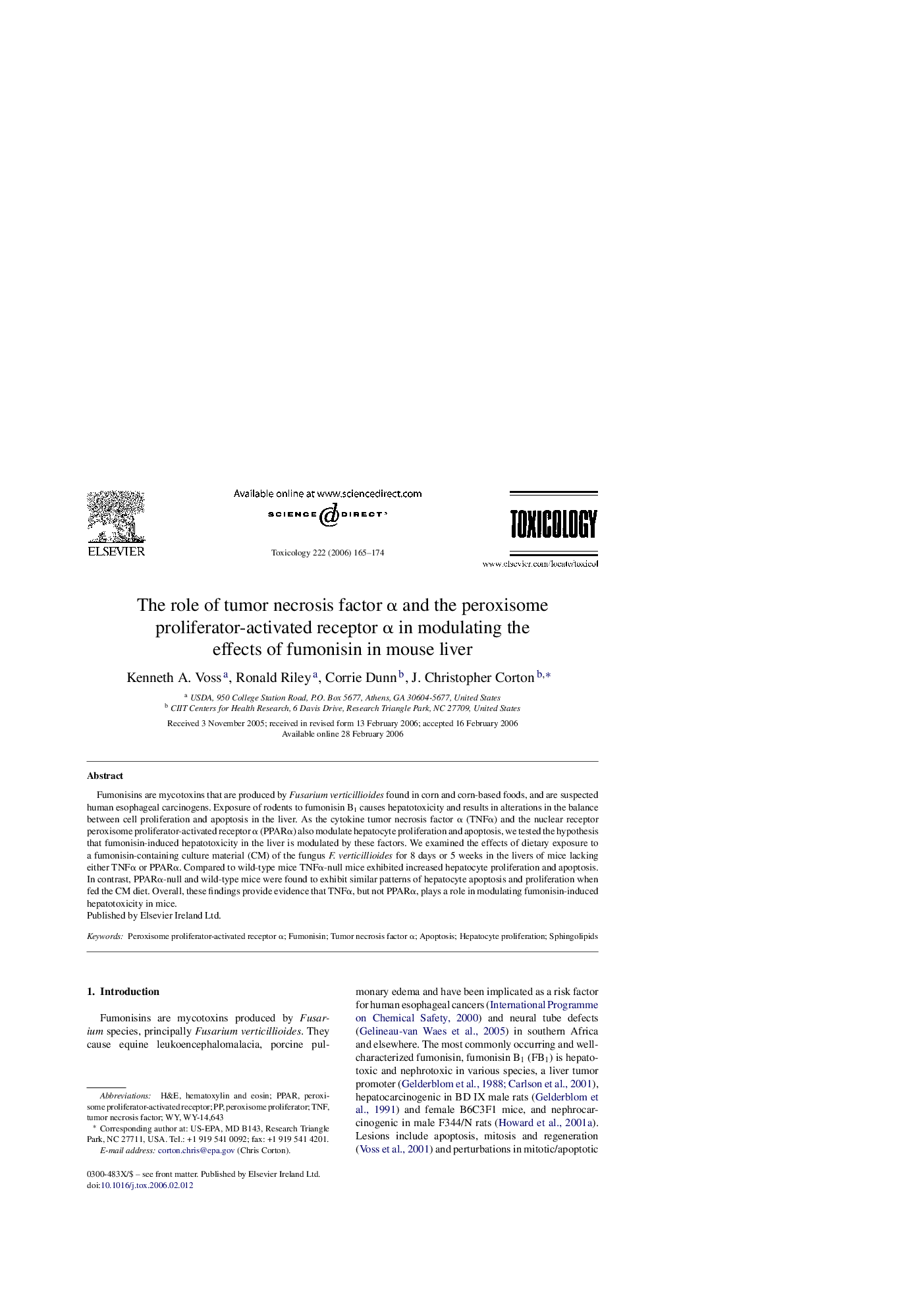| Article ID | Journal | Published Year | Pages | File Type |
|---|---|---|---|---|
| 2597844 | Toxicology | 2006 | 10 Pages |
Abstract
Fumonisins are mycotoxins that are produced by Fusarium verticillioides found in corn and corn-based foods, and are suspected human esophageal carcinogens. Exposure of rodents to fumonisin B1 causes hepatotoxicity and results in alterations in the balance between cell proliferation and apoptosis in the liver. As the cytokine tumor necrosis factor α (TNFα) and the nuclear receptor peroxisome proliferator-activated receptor α (PPARα) also modulate hepatocyte proliferation and apoptosis, we tested the hypothesis that fumonisin-induced hepatotoxicity in the liver is modulated by these factors. We examined the effects of dietary exposure to a fumonisin-containing culture material (CM) of the fungus F. verticillioides for 8 days or 5 weeks in the livers of mice lacking either TNFα or PPARα. Compared to wild-type mice TNFα-null mice exhibited increased hepatocyte proliferation and apoptosis. In contrast, PPARα-null and wild-type mice were found to exhibit similar patterns of hepatocyte apoptosis and proliferation when fed the CM diet. Overall, these findings provide evidence that TNFα, but not PPARα, plays a role in modulating fumonisin-induced hepatotoxicity in mice.
Keywords
Related Topics
Life Sciences
Environmental Science
Health, Toxicology and Mutagenesis
Authors
Kenneth A. Voss, Ronald Riley, Corrie Dunn, J. Christopher Corton,
